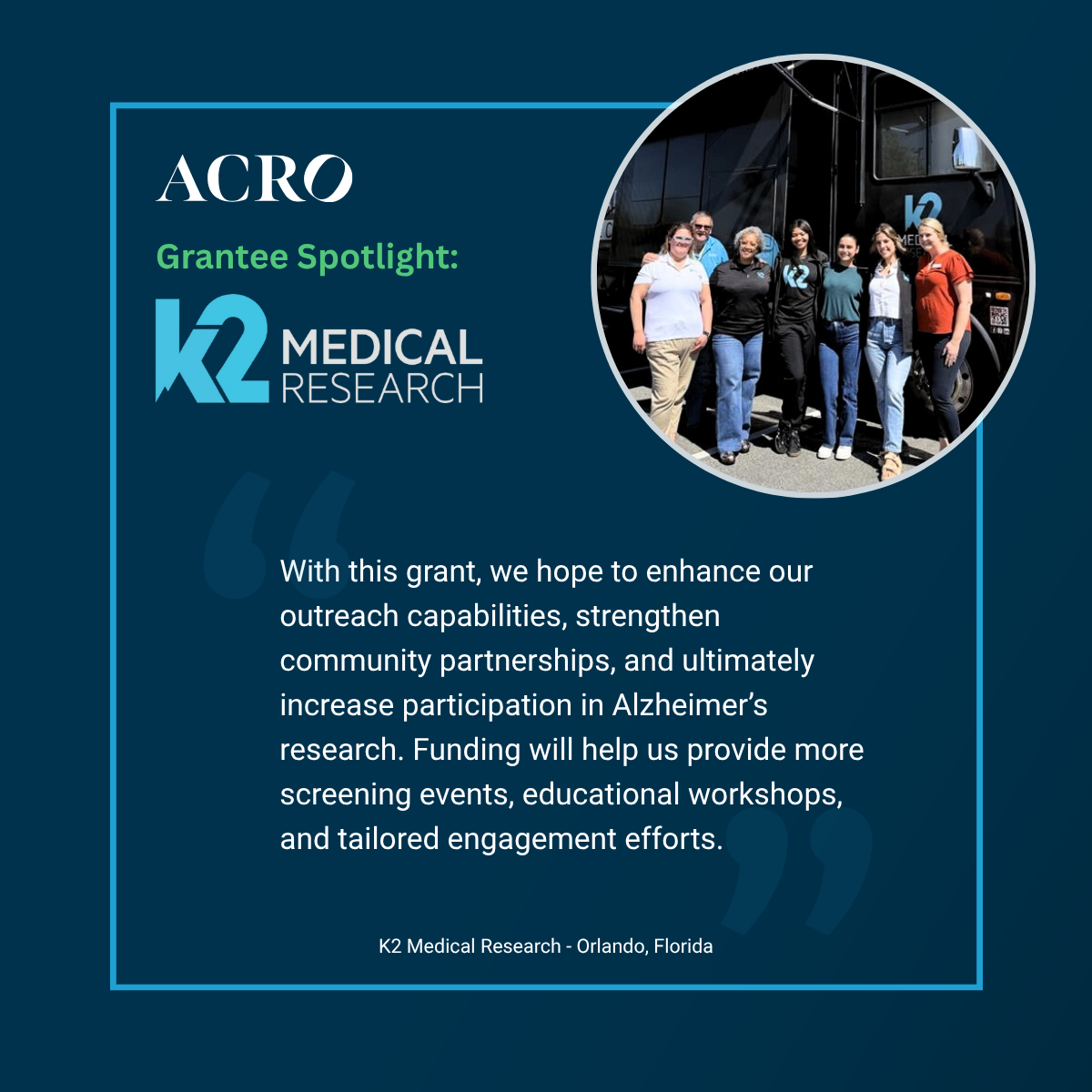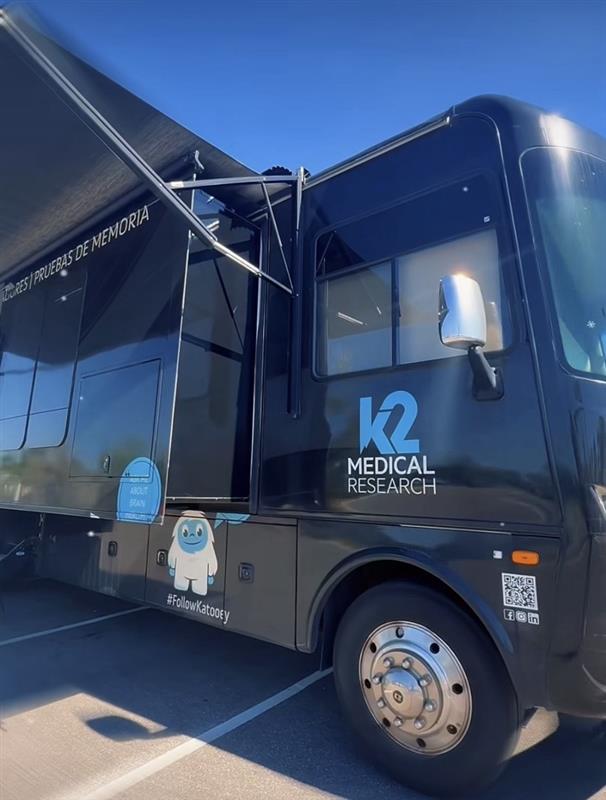ACRO’s Site Resource Grants are designed to serve as seed funding to help clinical research sites explore innovative strategies for improving clinical trial enrollment. Each grant allows the grantee site to enact a 12-month pilot project designed to educate and engage with their unique local community.
K2 Medical Research, awarded a grant from ACRO in 2024, is a clinical research site network with seven locations across Central Florida including Orlando, Tampa, the Villages, and Daytona. Through their ACRO grant project, K2 Medical Research is working to increase Alzheimer’s clinical trial participation in historically underserved and underrepresented communities.

To create more opportunities for engagement and education in their local community, K2 Medical Research is deploying a Mobile Research Unit (MRU) named Wanda that brings their mission directly to the people.
The MRU is more than just a van – it’s a fully equipped mobile platform offering memory screenings, biomarker testing, and brain health education to individuals who might never otherwise engage with clinical research. The unit currently targets African American and Hispanic communities, who are 1.5 to 2 times more likely to develop Alzheimer’s disease, yet remain significantly underrepresented in research. By bringing clinical trial opportunities directly into their local community, the K2 team aims to promote earlier detection and improve access to research.
With ACRO’s grant funding, K2 is expanding outreach and screening capabilities, and building a scalable, proof-of-concept model that can be replicated nationwide. The team also seeks to strengthen local partnerships, host more frequent events and workshops, and deepen their engagement with their community across Central Florida.
The team at K2 Medical Research emphasizes that building truly representative clinical trials is not incidental – it requires intentionality, cultural competence, and long-term commitment to trust-building within communities. Meeting patients where they are, whether by ensuring access to educational materials in their native language, or addressing barriers like transportation, work schedules, and family obligations, is key to making research more accessible.
K2 calls on the broader clinical research industry to move beyond traditional recruitment models and adopt community-driven approaches that prioritize trust, accessibility, and education. For medical research to truly advance, it must reflect the populations it aims to serve.


